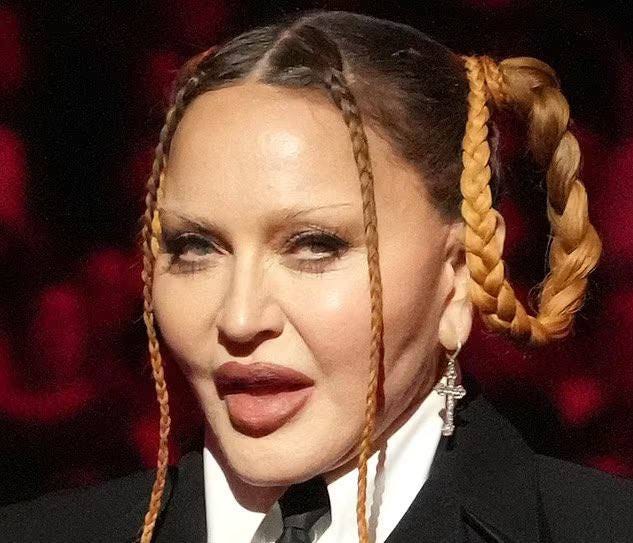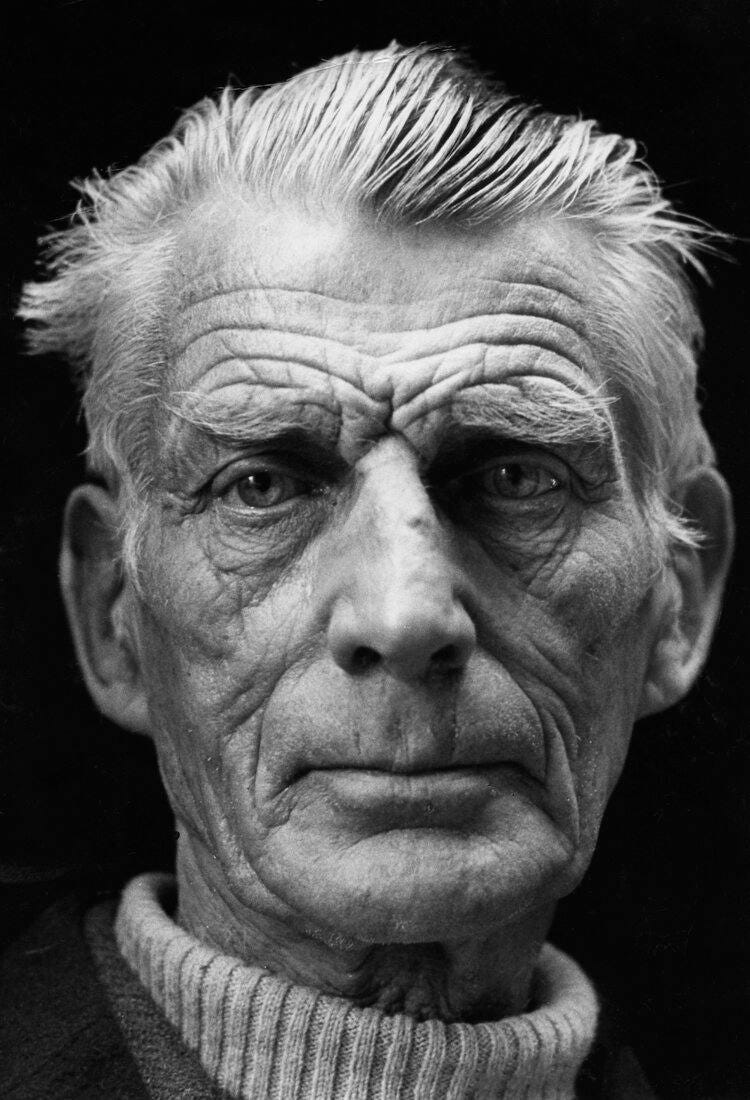There are terrible things happening in the world at the moment: the earthquake in Türkiye and Syria, the wars in Ukraine and Yemen, and, pedestrians and cyclists being killed by motorists in Glasgow. It’s a bleak time and so is hardly surprising that people look for distractions. This week’s distraction has come in the form of a widely-shared photo of Madonna at the Golden Globes.
The image of her dermal filler expanded face—looking more like Pete Burns or Jocelyn Wildenstein than the Madonna of old—gives us a scapegoat for our feelings of decay. Sure, we may be wrinkly and our bodies may be falling apart, but at least we haven't spent millions of dollars trying to cling to the vestiges of our youth. Or have we? The British spend £2.5bn a year on cosmetic surgery.1 Everywhere I go there are clinics advertising lip fillers, botox, and all manner of cosmetic enhancements. Maybe Madonna is just signalling the transhumanism to come and her next thing will be to get a robotic arm or upload her consciousness to a computer.
Madonna has been a cultural icon for 40 years. She has survived where others have fallen, staying more or less relevant by updating her style every couple of years. In the 1980s and 1990s, she was the Queen of Pop, now—aged 64—you'd think that she'd be slipping into an elder stateswoman role, but she seems determined to stay current. After the Golden Globes photo was criticised, she posted a posed image on Twitter, looking like the kind of teenager who hangs out in shopping centres.


John Updike wasn’t thinking about plastic surgery when he wrote that “celebrity is a mask that eats into the face” but it is clear that the level of scrutiny does make people incredibly self-conscious about their appearance.
What is it that Madonna wants? In Games People Play (1964), Eric Berne writes about the need for “recognition-hunger,” a sublimation of maternal affection:
After the period of close intimacy with the mother is over, the individual for the rest of his life is confronted with a dilemma upon whose horns his destiny and survival are continually being tossed. One horn is the social, psychological and biological forces which stand in the way of continued physical intimacy in the infant style; the other is his perpetual striving for its attainment. […] A movie actor may require hundreds of strokes each week from anonymous and undifferentiated admirers to keep his spinal cord from shrivelling, while a scientist may keep physically and mentally healthy on one stroke a year from a respected master.
So is it attention that Madonna wants? Is she doing whatever she needs to do to sell tickets for her upcoming world tour? I suspect it is classic human vanity. Young people don't have wrinkles, therefore if you don’t want to look old you need to have smooth skin. Though be careful what you wish for. If you make a pact with the devil never to have another wrinkle, you might find that you no longer have the ability to form facial expressions. She has succeeded in staying wrinkle-free, but the denial of death clouds her eyes. Compare her to Samuel Beckett at the same age, the creative intensity still burning fiercely despite his age.
This topic interests me because I have skin in the game, wrinkled skin in the game. I found a white hair in my beard a couple of months ago. My body is announcing that my genetic code is corrupted. Every time I see myself smiling in a selfie, I think: who is that old man? I am losing skin elasticity and tautness … It’s fine. I don’t mind, really I don’t. But it makes me think about what people do to themselves for vanity.
Every death is sad, but there’s something especially tragic about someone who travels to Türkiye to get fat transplanted into their buttocks in order to look like Kim Kardashian. Female beauty standards have become an arms race in the realm of secondary sexual characteristics. Just as a peacock carries around an elaborate plumage to impress peahens, modern women are increasingly burdened with expectations to augment their breasts, inject fat into their buttocks, and engorge their lips. They need to make an agreement amongst themselves to stop this arms race, as the Indian and Chinese have done in the Himalayas since 1966.


Everyone wants to be desirable. In Yellow Dog (2003), Martin Amis describes a character who has become totally invisible as a sexual object:
He had reached the age (he was forty-seven) where young women look through you, beyond you, they look through your ghost.
In Gary Shteyngart's dystopian novel, Super Sad True Love Story (2010), your “fuckability” rating appears next to you, as a metric, like the number of followers you have on Instagram. It is a literalisation of the modern sexual marketplace. Desirability operates unconsciously—on the level of animal instincts—but we can’t help and compare ourselves to others. I just wish we spent more time comparing ourselves to Samuel Beckett than Kylie Jenner.
“Perhaps my best years are gone. When there was a chance of happiness. But I wouldn't want them back. Not with the fire in me now. No, I wouldn't want them back.”
Krapp’s Last Tape(1958), Samuel Beckett
At the end of last year I mentioned that I wanted to write for other publications. This resolution has led to a flurry of pieces appearing this week, which I invite you to check out:
The art and architecture magazine, Recessed Space, published my article on Elizabeth Price’s exhibitions in Glasgow, giving it the evocative title Mining memory & meaning with Elizabeth Price.
Outsideleft, an independent culture zine, ran my review of Darren Aronofsky’s The Whale: What Good Does It Do Us To Confront Despair?
Finally, I wrote up the short talk I gave on side projects for UX Glasgow, the design meetup I help organise.
For comparison, this is about the same as we spend on crisps and £1bn more than we spend on bikes.








Have you heard about Bryan Johnson? I think the idea of turning back the clock is actually impossible: https://www.gq-magazine.co.uk/lifestyle/article/bryan-johnson-millionaire-deaging-technology
I prefer Samuel Beckett to Kylie Jenner any day, but I would have loved to see a picture of a woman who has aged naturally and beautifully...